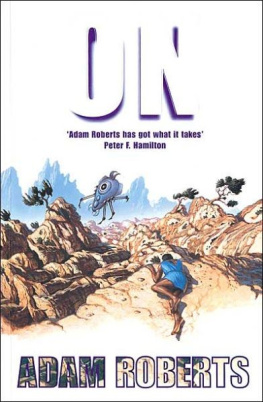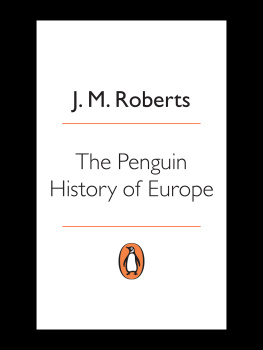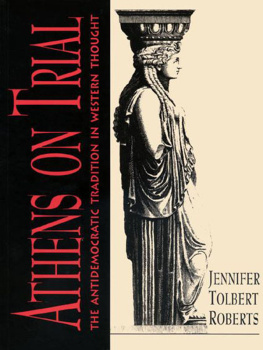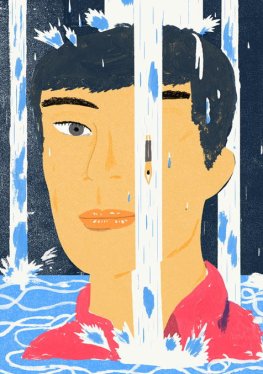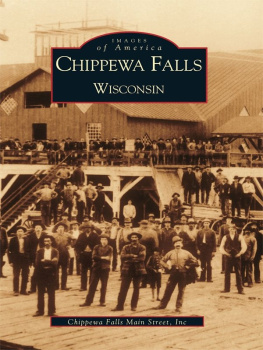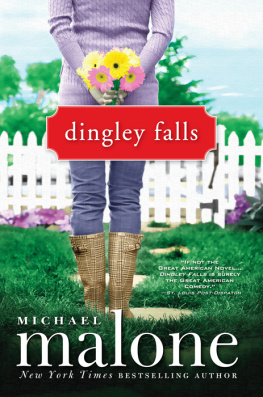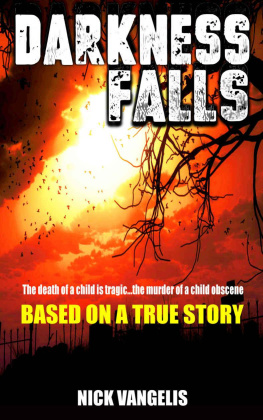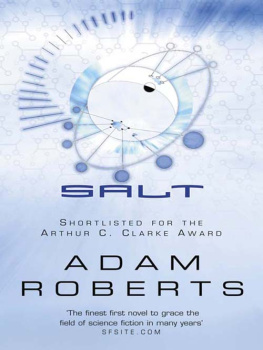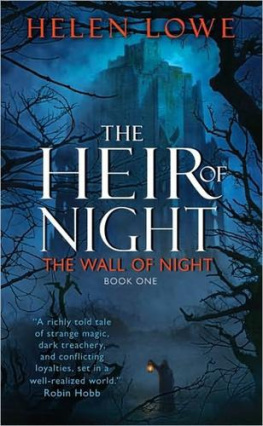Also by Adam Roberts in Gollancz:
SALT
STONE
POLYSTOM
ON
Adam Roberts
A Gollancz eBook
Copyright Adam Roberts 2001
All rights reserved.
The right of Adam Roberts to be identified as the author of this work has been asserted by him in accordance with the Copyright, Designs and Patents Act 1988.
First published in Great Britain in 2001 by
Gollancz
The Orion Publishing Group Ltd
Orion House
5 Upper Saint Martins Lane
London, WC2H 9EA
An Hachette UK Company
This eBook first published in 2010 by Gollancz.
A CIP catalogue record for this book
is available from the British Library.
ISBN 978 0 575 10035 0
This ebook produced by Jouve, France
All characters and events in this publication are fictitious and any resemblance to real persons, living or dead, is purely coincidental.
No part of this publication may be reproduced, stored in a retrieval system or transmitted in any form or by any means, without the prior permission in writing of the publisher, nor to be otherwise circulated in any form of binding or cover other than that in which it is published without a similar condition, including this condition, being imposed on the subsequent purchaser.
www.adamroberts.com
www.orionbooks.co.uk
Contents
Appendix
Notes on the World of On
How fearful
And dizzy tis to cast ones eyes so low!
The crows and choughs that wing the midway air
Show scarce so gross as beetles; half-way down
Hangs one who gathers samphire, dreadful trade!
Methinks he seems no bigger than his head.
The fishermen that walk upon the beach
Appear like mice, and yond tall anchoring bark
Diminishd to her cock, her cock a buoy
Almost too small for sight. The murmuring surge,
That on the unnumbered idle pebbles chafes,
Cannot be heard so high.
King Lear, 4:6
The soul, like fire, abhors what it consumes.
Derek Walcott, Another Life
1
Prince
1
On Tighes eighth birthday one of the family goats fell off the world. This was a serious matter.
The news of this loss, of losing so valuable a thing as a goat, went all round the village. Of course, it completely eclipsed Tighes birthday. Tighes pas were struck down by the news, his pahe reacting in what was a typical manner for him, sitting gloomily in the shadows of the house; and his pashe reacting typically for her, shouting her anger. Tighe was only glad, as his pashe raged, kicking chunks out of the house-wall in her fury, that he was not yet old enough to be given the task of tending the goats, or he could have been responsible and then he would have been on the receiving end of the rage. It was a girl called Carashe, who had been paid to tend the winter flock for the moment, until he was old enough to take on the job. A couple of months earlier Tighe had gone up (to see how it was done because a Princes son ought to know about these things) and watched Carashe tending the animals as they grazed the higher ledges. There was no doubt that goats were the stupidest things ever put on the wall. It was a puzzle why God had created them. They looked sideways at you with their lunatic eyes, grinding their mouths never-endingly; and then youd try to come over to them to tug their hair or pet them or something and theyd leap to the side, or scatter away like midges evading a swatting hand. Theyd leap with no thought to where the edge might be. It was as if their pearl-small brains had not registered that God had put them on the worldwall in the first place.
Its because theyre animals, Wittershe had told him. They have no brains.
But that didnt make sense because there were lots of animals on the wall that never lurched about with such a suicidally myopic sense of where they were. The monkeys never did that, for instance.
Tighe preferred the monkeys, in fact. He knew (if only because he had been told so) that goats had a higher status than monkeys; that it was appropriate for the Princes family to own goats and that everybody in the village looked down on an old monkeymonger like Wittershes pahe. But monkeys looked nicer, nearly human. And they acted smart and Tighe liked that.
I guess Ive always wondered why goats are better than monkeys, he had said a few weeks before his birthday. It had been a bad moment. Pashe was sitting in her chair, reading through her tattered edition of the Sayings. Pashe, why is it that goats are better than monkeys? His question sent her flying into a rage. Sometimes it took the slightest thing to send her exploding with her anger. Even as a little boy Tighe could sense that she was a woman stuffed so full of anger that the merest rip in her outward skein of mood would cause it to come bursting out. She didnt get up this time (which was good, he knew, because it meant she wouldnt actually smack him), but she sat there screaming. This boy will drive us all over the ledge, will he never stop with his questions? Will he smash my head apart With all his questions? On and on and on
Tighes pahe, who had been mending the dawn-door with some mud-patched grass-weave, heard the raised voice and came through. Tighe, sitting in his alcove frozen with sudden fear, saw him come in. Recognised the delicate, graceful pad of his walk; the way he lowered his head and hunched up his shoulders, placatory. It was a delicate dance, but one that Tighe had seen so often he thought it ordinary. Surely everybodys family was like this. Pahe would try and calm pashe, would say things in a smooth low voice, would start to stroke her sides. If her anger settled a little, he would stroke her head and maybe kiss her. If it didnt, then she might well start hitting him, or pulling at his hair, and then Tighe would watch his pahe bend double, bring his elbows up to defend his head, and his own heart would shrink within him. But on this occasion it didnt take much to calm pashe down.
Its that boy, she said loudly. He will drive me to madness. He will drive me over the edge.
I think, said pahe, sucking at his words and letting them out slowly, that maybe the boy had better come and help me mend the dawn-door.
Pahe had taken him by the hand and led him out of his alcove and out into the vestibule. But, of course, pahe had no need of his help mending the dawn-door. So, instead, Tighe sat and watched his father work, plaiting the grass-stems together and smoothing plastermud over the mat with a spatula. His pahe was a handsome man; he was certain of it. His skin was smooth, as richly brown as the mud he worked with, his features regular. His eyes were pale, the irises violet like a flame in daylight. His straight black hair was neat. Tighe admired his pahe.
What had you said, pahe was asking, to get your pashe so riled?
The question burned in his head now. He wished hed never asked it. He wished hed never thought it. He hated the way he couldnt sit still, couldnt think still, the way his pashe did. She could sit and be absolutely motionless for hour after hour. But he fidgeted and wriggled, and kept thinking of questions. But his pahe had asked, and so he said, I was only wondering why goats are better than monkeys.
And, of course, his pahe was not angry. It was, he said in his quiet, slow way, a good question. It was a thoughtful question.
Its only, Tighe went on, that monkeys look so much more like human beings, dont they? They

